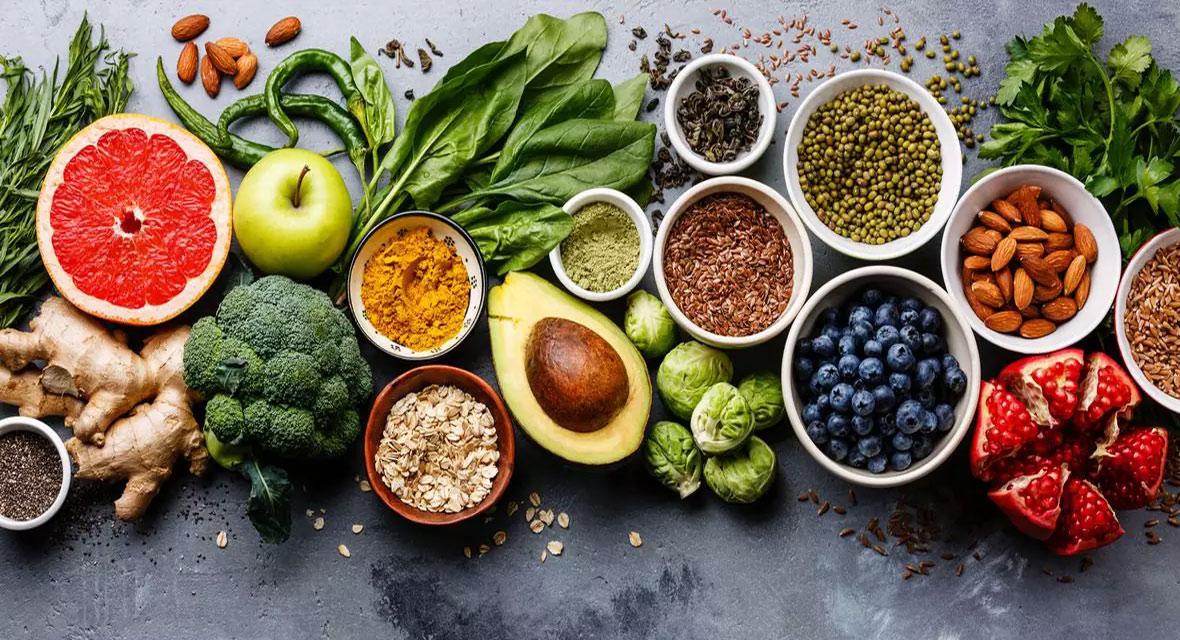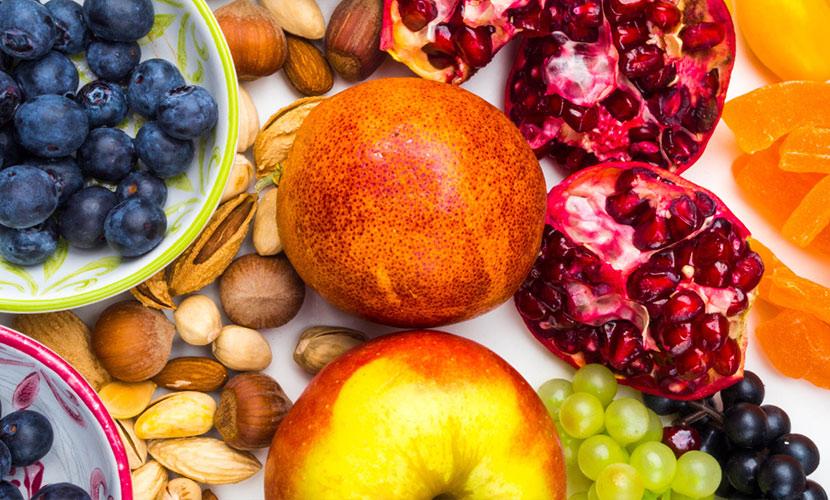🏆 As seen and loved on Shark Tank Dubai 🏆

Top 20 Vitamin D Rich Fruits and Vegetables (With Benefits)
In the pursuit of optimal health, understanding the significance of essential nutrients is paramount. Among these, Vitamin D, also known as sunlight nutrient, plays a pivotal role, contributing not only to bone health but also to immune system function and overall well-being. As our lifestyles increasingly shift towards indoor pursuits, understanding alternative sources of this crucial element becomes imperative. While sunlight remains a key contributor, the culinary landscape offers a delectable array of Vitamin D-rich fruits and vegetables, presenting a palatable solution to nutritional needs.
Delving into the world of nature's bounty, we explore how these foods contribute to a healthier, more vibrant life through their valuable nutrient content.
Understanding Vitamin D
Vitamin D is a fat-soluble prohormone that holds the key to multifaceted health benefits and plays a pivotal role in various physiological processes. Predominantly recognized for its contribution to bone health by aiding calcium absorption, it also exerts influence on the immune system, cardiovascular health, and cellular function. Though sunlight remains a primary source, it's crucial for individuals, especially those following a vegetarian diet, to explore alternative sources.
While plant-based options naturally rich in this nutrient are limited, people can meet their dietary requirements through fortified foods such as plant-based milk and cereals. Understanding the nuances of this component unveils the importance of mindful food choices and, when necessary, supplementation, ensuring comprehensive health benefits for individuals embracing nutritional pathways.
Importance of Vitamin D Rich Foods
Recognizing the significance of integrating Vitamin D-rich foods into your diet becomes even more crucial, especially in the era of evolving nutritional practices and the growing popularity of meal plan subscriptions.
Bone Health: This vital element is critical for the absorption of calcium, which supports strong and healthy bones.
Immune System Support: Its adequate levels contribute to a robust immune system, helping the body defend against infections and illnesses.
Cellular Regulation: This element regulates cell growth, differentiation, and apoptosis, influencing overall cellular function.
Cardiovascular Health: Some studies suggest a link between sufficient Vitamin D levels and cardiovascular health, including heart function and blood pressure regulation.
Mood and Mental Health: Emerging research indicates a potential connection between this vital nutrient and mood regulation, with implications for mental well-being.
Muscle Health: It is associated with muscle function, and maintaining optimal levels may contribute to muscle strength and coordination.
Prevention of Rickets: Vitamin D deficiency can lead to conditions like rickets, particularly in children, emphasizing the importance of sufficient intake.
Enhanced Calcium Absorption: It facilitates the absorption of calcium in the intestines, aiding in the maintenance of proper calcium levels in the body.
Improved Overall Well-Being: Regular consumption of Vitamin D-rich foods contributes to overall vitality, promoting a healthier and more resilient body.
Vitamin D Rich Fruits

While fruits generally contain lower levels of Vitamin D compared to other food groups, incorporating a variety of them into your diet can contribute to your overall nutrient intake.
Oranges
Oranges are not only rich in Vitamin C but also contain a fair amount of sunlight nutrients. Incorporating oranges into your diet can contribute to your daily Vitamin D intake.
Bananas
Bananas are a convenient and delicious source of this element. They also provide other essential nutrients, making them a versatile and healthy snack.
Avocado
Avocado is a nutrient-dense fruit that also contains this crucial component. Its creamy texture and mild flavor make it a great addition to salads, sandwiches, or as a standalone snack.
Strawberries
Strawberries are not only rich in antioxidants but also contain a modest amount of this substance. You can enjoy them on their own, in smoothies, or as a topping for yogurt.
Papaya
Papaya is a tropical fruit that not only offers a sweet and refreshing taste but also provides a good dose of this vital element. It's a versatile fruit that can be enjoyed on its own or in fruit salads.
Mango
Mangoes, besides being a delightful tropical treat, contribute to your Vitamin D intake. You can relish them fresh, in smoothies, or as part of fruit salsas.
Kiwi
Kiwi is a small but nutrient-packed fruit that contains sunlight nutrients among its various health-promoting compounds. You can incorporate kiwi into your diet for a refreshing and tangy flavor.
Guava
Guava is a tropical fruit that stands out for its exceptional sunlight nutrient content. Packed with nutrients, including fiber and antioxidants, guava makes for a delicious and nutritious addition to your diet.
Figs
Figs are a nutrient powerhouse, offering vitamins A, K, D, and various B vitamins. They also provide essential minerals like potassium, magnesium, and calcium.
Watermelon
It is rich in vitamins A and C and contains a small amount of Vitamin D. This refreshing fruit also contains antioxidants like lycopene, promoting heart health.
Vitamin D Rich Vegetables

There is a wealth of Vitamin D nutrient-packed vegetables that are essential for bone health and immune function. These vegetables, while varying in taste and texture, share the common trait of being excellent sources of this vital nutrient. Including a diverse array of such vegetables in your diet contributes to overall well-being, ensuring you reap the benefits of this essential vitamin for a healthier, more vibrant lifestyle.
Mushrooms
Certain varieties of mushrooms, when exposed to sunlight, become a rich source of this essential element, making them a valuable addition to your diet.
Spinach
Packed with nutrients, spinach offers a modest but beneficial amount of sunlight nutrients, contributing to overall health and well-being.
Kale
Kale, a nutrient-dense leafy green, contains this component alongside other essential vitamins and minerals, enhancing its nutritional profile.
Broccoli
Broccoli, a versatile cruciferous vegetable, contains this compound and offers a range of health benefits when included in your diet.
Sweet Potatoes
Sweet potatoes are a wholesome source of nutrients and also contain this vital element that makes them a nutritious choice for a balanced diet.
Bitter Gourd
Bitter gourd, with its unique flavor, also contains this compound, adding diversity to your nutrient intake and supporting your overall health.
Drumsticks
Drumsticks are known for their culinary versatility and include a modest amount of Vitamin D. Incorporating drumsticks into your diet provides not only a unique flavor but also contributes to your overall nutrient intake.
Bottle Gourd
It is rich in vitamin C, fiber, and water content, and has a small amount of the essential component.
Amaranth Leaves
Even though the vital nutrient is present in smaller proportions, these leaves are rich in vitamins A, C, and K, as well as iron and calcium.
Okra
It is a good source of fiber, vitamins A, C, and D, and folate. With potential anti-inflammatory properties, okra supports digestive health.
Summary
Exploring the realm of optimal nutrition reveals a bounty of Vitamin D-rich fruits and vegetables that go beyond the conventional sources. The vibrancy of fruits is not overlooked, with fortified orange juice, mangoes, and plant-based milk making the cut. This nutritional symphony continues with the inclusion of vitamin-packed fruits like strawberries, papaya, and kiwi. From the leafy greens of spinach and kale to the cruciferous goodness of broccoli and drumsticks, the variety is as vast as the benefits.
By exploring these diverse sources, you can strengthen your immune system, support bone health, and contribute to your overall well-being. The nutritional richness of these options offers a holistic and flavorful approach to achieving optimal Vitamin D levels, ensuring that your diet is not only nourishing but also varied and enjoyable.
FAQs
Why is Vitamin D important for our health?
One of the essential nutrients that our body needs is Vitamin D as it helps in building and maintaining healthy bones in our body. The primary function of Vitamin D is to aid in absorption of calcium in our body. As our body can only absorb calcium in presence of vitamin D. The nutrient also holds importance in regulating important functions in the immune system, cardiovascular health, and cellular function.
Can I get enough Vitamin D from fruits and vegetables alone?
No, fruits and vegetables alone might not be sufficient in getting the recommended amount of vitamin D in our body. You can also include foods such as mushrooms, fishes, egg yolk, and other fortified food rich in vitamin D such as soya beans and cereals. You can also bask in the sunlight to increase your vitamin D intake.
Which fruits are particularly good sources of Vitamin D?
Fruits such as bananas and oranges are some of the best sources of vitamin D. Other Vitamin D sources for fruits include kiwis, figs, papaya, guava and avocado. Strawberries, mangoes and watermelon are seasonal examples of fruits rich in vitamin D.
Are there any vegetables that are rich in Vitamin D?
Many vegetables are rich in vitamin D. Some famous examples are mushrooms, spinach, kale, broccoli, sweet potatoes, drumsticks, and okra. It is always best to include fruits, vegetables, meat, and dairy products in your diet.
Reach out to start your fitness journey with us!
Meal Plans
Delivery Details
Legal Information
© 2020-2026 VMeals. All rights reserved. VMeals™ is a trademark of Flip Side Restaurant and Cafe L.L.C
We accept
